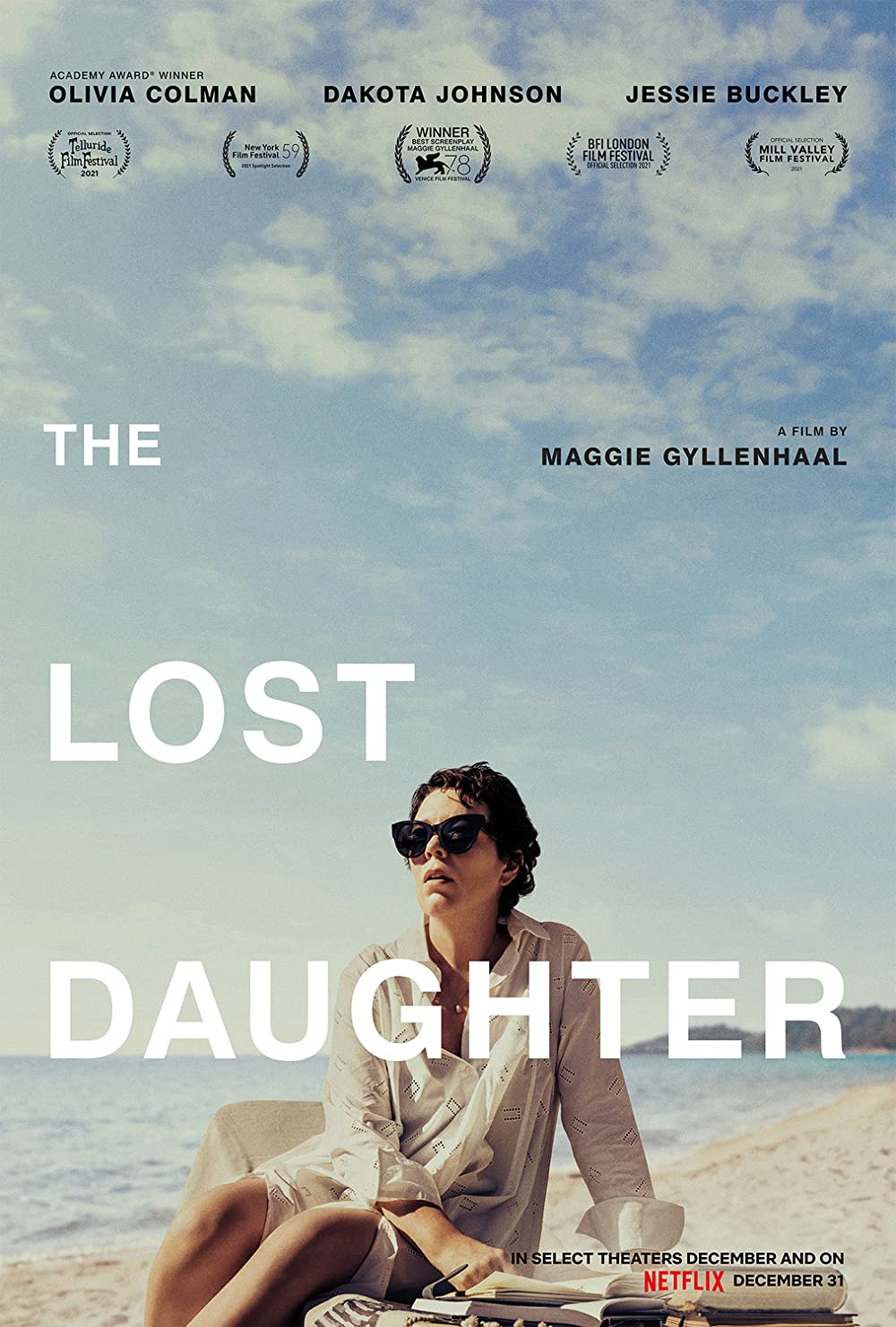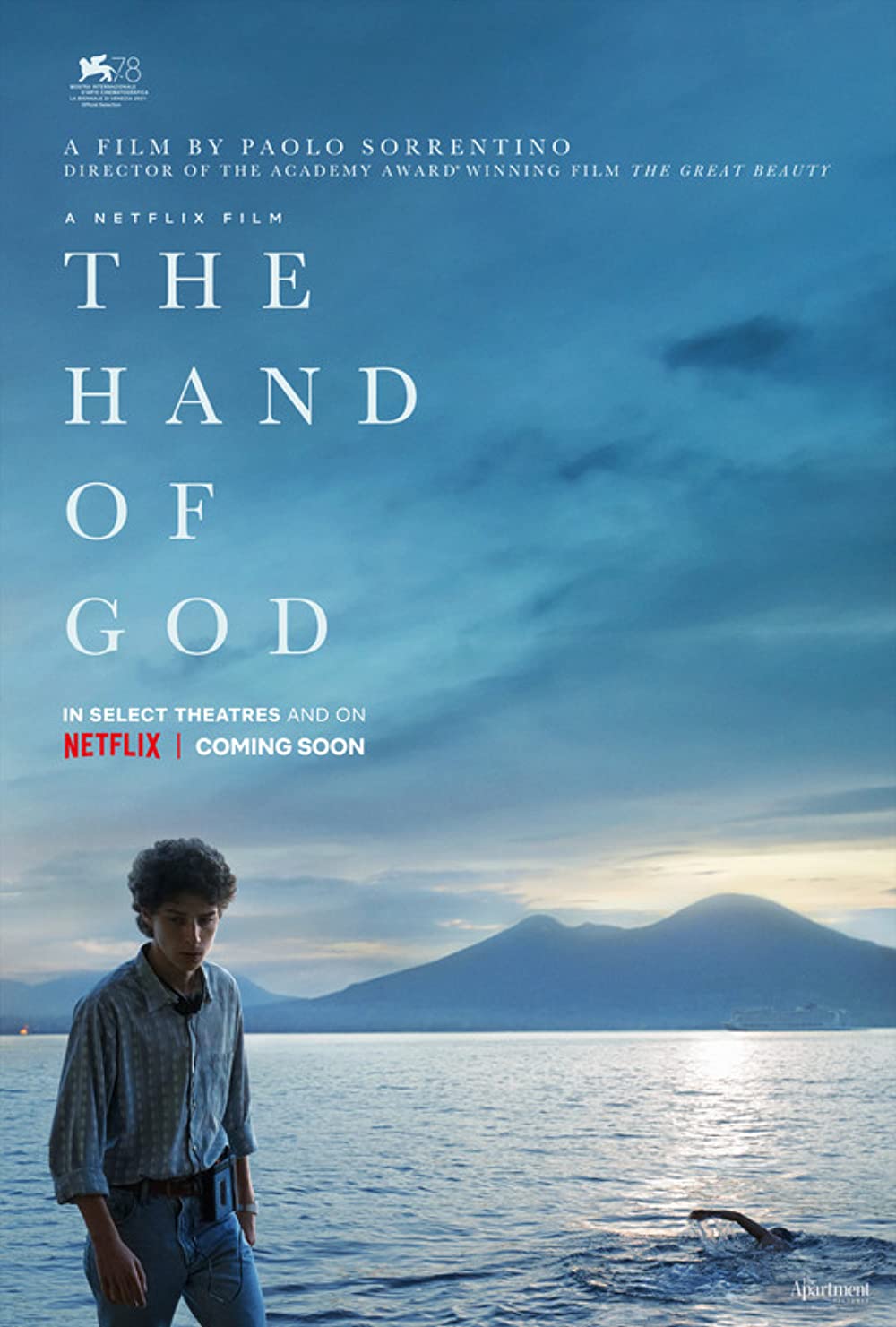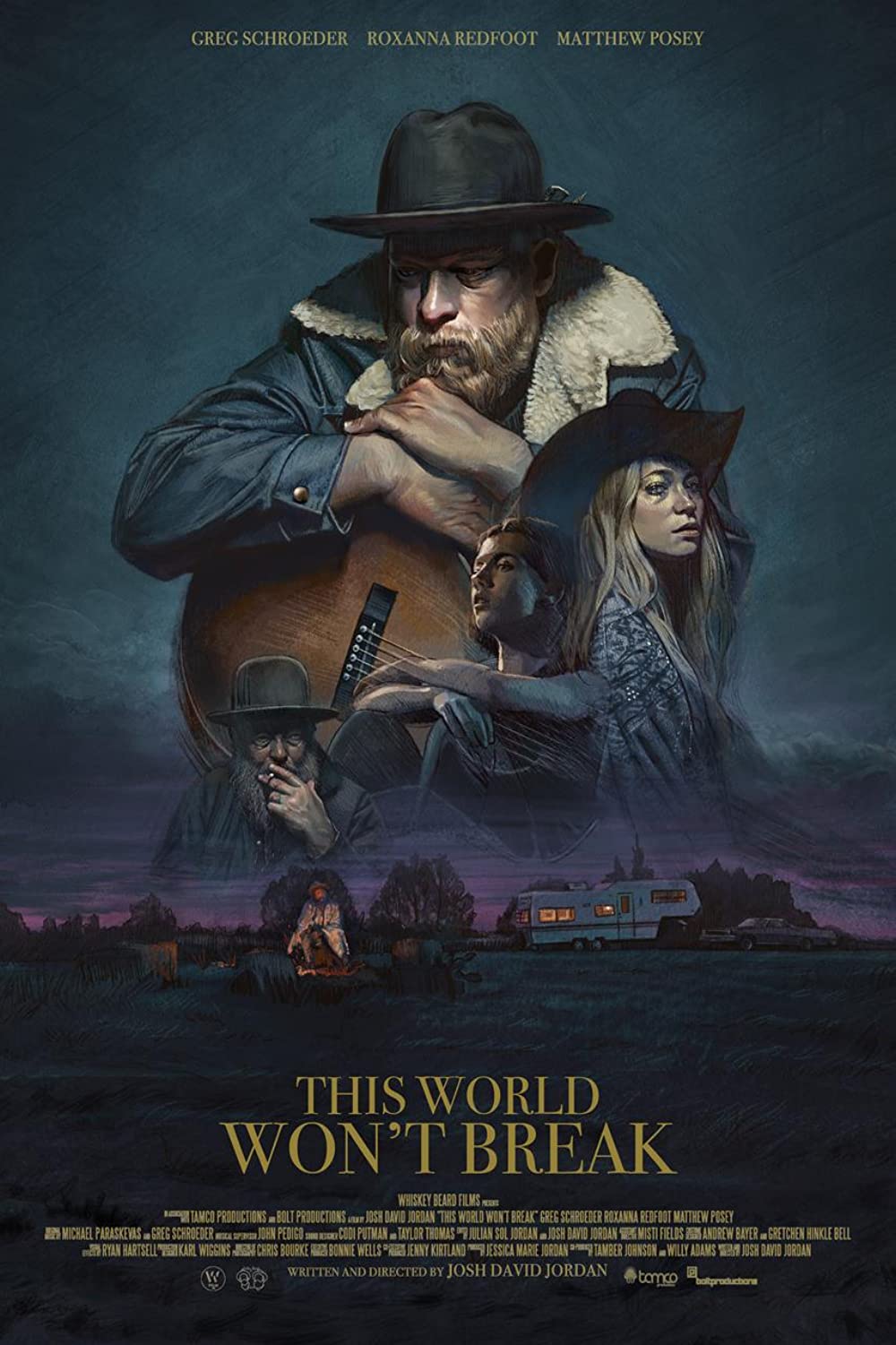I Wake Up Streaming: January 2022
Movies
In this edition of “I Wake Up Streaming,” novelist William Boyle rounds up his top streaming picks for the month of January. The column’s name is a play on the 1941 film I Wake Up Screaming, starring Betty Grable, Victor Mature, and Carole Landis. While the film’s title hits a pleasing note of terror and despair, changing that one letter speaks to the joy of discovering new films and rediscovering old favorites, as well as the panic that comes with being overwhelmed by options.
The Lost Daughter (Netflix)
 Based on the novel by Italian writer Elena Ferrante and adapted by Maggie Gyllenhaal, this is the last movie I watched in 2021 and one of my favorites of the year. Olivia Colman stars as Leda Caruso, a British professor of comparative literature who teaches at Harvard and has come to the small fictional Greek island of Kyopeli on vacation. (In Ferrante’s novel, Leda is an Italian professor of English literature from Naples on holiday in Italy.) In the film, Leda’s main encounters are with other English speakers—a Greek-American family from Queens, New York, on holiday, including Nina (Dakota Johnson) and her daughter, Elena, as well as her pregnant sister-in-law, Callie (Dagmara Domińczyk). There are also a few men: a jack-of-all-trades caretaker played by Ed Harris; an Irish student working on the island played by Paul Mescal; and Nina’s husband, the gangsterish Toni (Oliver Jackson-Cohen). Leda’s memories of her own daughters are ignited by the relationship between Nina and Elena, culminating in some strange behavior on her part, most notably the kidnapping of the young girl’s beloved doll. Leda is a puzzle: obsessive, oblique, awkward, troubled, forthright, confident. In flashbacks, we see her as a young scholar, portrayed by the brilliant and utterly electric Jessie Buckley, trying to make sense of her identity as a mother and wife while simultaneously carving out a place for herself in academia. I’ve read some angry reactions to The Lost Daughter, but I’ve also seen many glowing recommendations. What surprises me most is that more folks aren’t writing about it as a dark comedy (about parenthood and academia, chiefly)—that’s how it hit me. It’s not the kind of comedy you’re laughing along with, but—for me at least—there were images and moments and lines that burrowed into my imagination and sort of exploded hours or days later. Part of the problem might be that the film is dressed up as a psychological drama; I think a second viewing will take away some of the tension that arises from the expectation that this is going somewhere else or doing something else. Above all, this is a stunning debut from Gyllenhaal. It probably isn’t perfect—and many viewers will, in fact, find it frustrating—but it’s beautiful and subtly funny and haunting, and I haven’t stopped thinking about it. A great achievement. The year belongs to Jane Campion and The Power of the Dog, but don’t sleep on this one. Any movie that gives you Olivia Colman and Ed Harris dancing to Bon Jovi is a gift.
Based on the novel by Italian writer Elena Ferrante and adapted by Maggie Gyllenhaal, this is the last movie I watched in 2021 and one of my favorites of the year. Olivia Colman stars as Leda Caruso, a British professor of comparative literature who teaches at Harvard and has come to the small fictional Greek island of Kyopeli on vacation. (In Ferrante’s novel, Leda is an Italian professor of English literature from Naples on holiday in Italy.) In the film, Leda’s main encounters are with other English speakers—a Greek-American family from Queens, New York, on holiday, including Nina (Dakota Johnson) and her daughter, Elena, as well as her pregnant sister-in-law, Callie (Dagmara Domińczyk). There are also a few men: a jack-of-all-trades caretaker played by Ed Harris; an Irish student working on the island played by Paul Mescal; and Nina’s husband, the gangsterish Toni (Oliver Jackson-Cohen). Leda’s memories of her own daughters are ignited by the relationship between Nina and Elena, culminating in some strange behavior on her part, most notably the kidnapping of the young girl’s beloved doll. Leda is a puzzle: obsessive, oblique, awkward, troubled, forthright, confident. In flashbacks, we see her as a young scholar, portrayed by the brilliant and utterly electric Jessie Buckley, trying to make sense of her identity as a mother and wife while simultaneously carving out a place for herself in academia. I’ve read some angry reactions to The Lost Daughter, but I’ve also seen many glowing recommendations. What surprises me most is that more folks aren’t writing about it as a dark comedy (about parenthood and academia, chiefly)—that’s how it hit me. It’s not the kind of comedy you’re laughing along with, but—for me at least—there were images and moments and lines that burrowed into my imagination and sort of exploded hours or days later. Part of the problem might be that the film is dressed up as a psychological drama; I think a second viewing will take away some of the tension that arises from the expectation that this is going somewhere else or doing something else. Above all, this is a stunning debut from Gyllenhaal. It probably isn’t perfect—and many viewers will, in fact, find it frustrating—but it’s beautiful and subtly funny and haunting, and I haven’t stopped thinking about it. A great achievement. The year belongs to Jane Campion and The Power of the Dog, but don’t sleep on this one. Any movie that gives you Olivia Colman and Ed Harris dancing to Bon Jovi is a gift.
The Hand of God (Netflix)
 Another movie I watched the last week of 2021 that wound up in my top five favorites of the year. Paolo Sorrentino, telling the story of sixteen-year-old Fabietto Schisa (Filippo Scotti) in 1980s Naples, goes back to his roots, making his best film since The Great Beauty. The title The Hand of God comes from the phrase that footballer Diego Maradona came up with to describe a hand-assisted goal he scored during the Argentina vs. England quarterfinals match of the 1986 FIFA World Cup, but it has a deeper resonance in the movie, as Fabietto makes a decision that saves his life (family members credit it as “the hand of God”). Fabietto, a rabid football fan, dreams and hopes that Maradona will come to Naples to play, which he eventually does. That’s one of the things going on the background of the story. Fabietto’s family—his father, Saverio (Sorrentino fixture Toni Servillo); his mother, Maria (Teresa Saponangelo); his brother, Marchino (Marlon Joubert); a sister we hardly see because she’s always in the bathroom; and his mentally ill Aunt Patrizia (the stunning and unforgettable Luisa Ranieri)—are at the center of the story. Film is also central. Marchino auditions for a Fellini movie and has his dreams dashed by the maestro. Fabietto witnesses a film being shot and later encounters a lesser-known director named Antonio Capuano. Fabietto tells Capuano that he wants to be a filmmaker, even though he’s only seen three or four films. There are other wild characters that fill out the sprawling cast, most memorably a smuggler named Armando (Biagio Manna); Baronessa Focale (Betti Pedrazzi), a widow who lives above the Schisas and takes Fabietto’s virginity as an act of mercy or pity; and the meanest woman in Naples, Señora Gentile (Dora Romano). It’s an operatic and deeply autobiographical tale about youth and burgeoning creativity, about shedding old identities and finding new ones, and it sings with Sorrentino’s influences—Fellini, Sergio Leone, maybe even a hint of Tinto Brass. It’s funny, sad, tender, and tragic. One of the best coming-of-age stories I’ve seen in a while. An ode to Naples, to family, to the places that make us. A meditation on the sacred things we find and then lose and then go searching for elsewhere. Brilliant performances by Scotti, Ranieri, Servillo, and Saponangelo anchor the picture. “I want an imaginary life,” Fabietto says late in the narrative. “I don’t like reality anymore.” He’s speaking of his newfound desire to make films. In a short accompanying extra, Sorrentino says, “Reality is just the starting point for a story. It has to be reinvented. Here in Naples, we have a fun way of reinventing memories.” The Hand of God is true and raw and strange, full of reinvented memories and impressions and emotional landscapes. So much pain and loss, so much love and joy.
Another movie I watched the last week of 2021 that wound up in my top five favorites of the year. Paolo Sorrentino, telling the story of sixteen-year-old Fabietto Schisa (Filippo Scotti) in 1980s Naples, goes back to his roots, making his best film since The Great Beauty. The title The Hand of God comes from the phrase that footballer Diego Maradona came up with to describe a hand-assisted goal he scored during the Argentina vs. England quarterfinals match of the 1986 FIFA World Cup, but it has a deeper resonance in the movie, as Fabietto makes a decision that saves his life (family members credit it as “the hand of God”). Fabietto, a rabid football fan, dreams and hopes that Maradona will come to Naples to play, which he eventually does. That’s one of the things going on the background of the story. Fabietto’s family—his father, Saverio (Sorrentino fixture Toni Servillo); his mother, Maria (Teresa Saponangelo); his brother, Marchino (Marlon Joubert); a sister we hardly see because she’s always in the bathroom; and his mentally ill Aunt Patrizia (the stunning and unforgettable Luisa Ranieri)—are at the center of the story. Film is also central. Marchino auditions for a Fellini movie and has his dreams dashed by the maestro. Fabietto witnesses a film being shot and later encounters a lesser-known director named Antonio Capuano. Fabietto tells Capuano that he wants to be a filmmaker, even though he’s only seen three or four films. There are other wild characters that fill out the sprawling cast, most memorably a smuggler named Armando (Biagio Manna); Baronessa Focale (Betti Pedrazzi), a widow who lives above the Schisas and takes Fabietto’s virginity as an act of mercy or pity; and the meanest woman in Naples, Señora Gentile (Dora Romano). It’s an operatic and deeply autobiographical tale about youth and burgeoning creativity, about shedding old identities and finding new ones, and it sings with Sorrentino’s influences—Fellini, Sergio Leone, maybe even a hint of Tinto Brass. It’s funny, sad, tender, and tragic. One of the best coming-of-age stories I’ve seen in a while. An ode to Naples, to family, to the places that make us. A meditation on the sacred things we find and then lose and then go searching for elsewhere. Brilliant performances by Scotti, Ranieri, Servillo, and Saponangelo anchor the picture. “I want an imaginary life,” Fabietto says late in the narrative. “I don’t like reality anymore.” He’s speaking of his newfound desire to make films. In a short accompanying extra, Sorrentino says, “Reality is just the starting point for a story. It has to be reinvented. Here in Naples, we have a fun way of reinventing memories.” The Hand of God is true and raw and strange, full of reinvented memories and impressions and emotional landscapes. So much pain and loss, so much love and joy.
This World Won’t Break (Prime Video, Kanopy, Tubi)
 Not a 2021 release and I’m a little late to it, but I’m damn glad I chanced across This World Won’t Break (2020), drawn in by its memorable poster. A small indie made on a shoestring budget ($36,000) and shot in and around Dallas, Texas, it’s something of a revelation. The story is built from stuff we’ve seen before—struggling singer/songwriter Wes Milligan (Greg Schroeder) is at the end of his rope, tired of playing the same clubs, tired of being talented but not breaking through, tired of the place he’s spent his whole life, full of its routines and ruts and dead ends. We’ve seen riffs on the themes on display here in A Star Is Born, Wheeler, Nashville Girl, Honkytonk Man, Wild Rose, Blaze, Crazy Heart, The Thing Called Love, and more. I’ll mention the modest budget again because it’s staggering how gorgeous the movie looks, in line with the muted tenderness of David Lowery and Terrence Malick. Dallas locations are used to great effect. Streets, clubs, cars, bars, yards, front porches, houses, big empty spaces that feel like the horizon. The movie manages to have a feeling, if that makes sense. Not all movies do. It’s something I associate more with songs and voices. It’s a certain kind of gentleness, an intimacy. You fall into it the way you do with a Townes Van Zandt song. A lot of that also has to do with the brooding naturalism that Schroeder brings to the part of Wes—the weight and heart of a real musician who’s been through what he’s portraying, who has fought and scraped by and clung hungrily to the dream. There’s no artifice here. This isn’t some actor whose gone method, who’s put on makeup and sworn off shaving or whatever. There’s real-life emotion in his performance; I was sold by the end of his opening voiceover. It should also be noted that his original songs feature prominently and it’s hard to imagine that the picture would work a fraction as well if the songs weren’t so damn good. But the most indelible performance is by Matthew Posey as Lonnie, Wes’s old man. Truly touching and riveting. He reminded me of a character from a Willy Vlautin song or novel. Overall, This World Won’t Break is an incredible debut by writer/director Josh David Jordan. In an era when way too many films are way too long—bloated, swollen with unnecessary shit—I wasn’t bothered by This World Won’t Break’s 148-minute runtime. It’s slow and patient in all the right ways, a movie that unfolds and drifts and appreciates space and silences. Its closest spiritual forebear is Bruce Beresford’s masterpiece Tender Mercies, but I was also put in mind of Texas indie icon Eagle Pennell, as there are scenes and encounters that have the same impact as some of the most memorable sequences in The Whole Shootin’ Match, A Hell of a Note, and Last Night at the Alamo. Another thing I really love here is the ambition. Though Jordan hits some familiar beats, his impulse is always to steer in another direction, to go against the grain. More people should know about this one.
Not a 2021 release and I’m a little late to it, but I’m damn glad I chanced across This World Won’t Break (2020), drawn in by its memorable poster. A small indie made on a shoestring budget ($36,000) and shot in and around Dallas, Texas, it’s something of a revelation. The story is built from stuff we’ve seen before—struggling singer/songwriter Wes Milligan (Greg Schroeder) is at the end of his rope, tired of playing the same clubs, tired of being talented but not breaking through, tired of the place he’s spent his whole life, full of its routines and ruts and dead ends. We’ve seen riffs on the themes on display here in A Star Is Born, Wheeler, Nashville Girl, Honkytonk Man, Wild Rose, Blaze, Crazy Heart, The Thing Called Love, and more. I’ll mention the modest budget again because it’s staggering how gorgeous the movie looks, in line with the muted tenderness of David Lowery and Terrence Malick. Dallas locations are used to great effect. Streets, clubs, cars, bars, yards, front porches, houses, big empty spaces that feel like the horizon. The movie manages to have a feeling, if that makes sense. Not all movies do. It’s something I associate more with songs and voices. It’s a certain kind of gentleness, an intimacy. You fall into it the way you do with a Townes Van Zandt song. A lot of that also has to do with the brooding naturalism that Schroeder brings to the part of Wes—the weight and heart of a real musician who’s been through what he’s portraying, who has fought and scraped by and clung hungrily to the dream. There’s no artifice here. This isn’t some actor whose gone method, who’s put on makeup and sworn off shaving or whatever. There’s real-life emotion in his performance; I was sold by the end of his opening voiceover. It should also be noted that his original songs feature prominently and it’s hard to imagine that the picture would work a fraction as well if the songs weren’t so damn good. But the most indelible performance is by Matthew Posey as Lonnie, Wes’s old man. Truly touching and riveting. He reminded me of a character from a Willy Vlautin song or novel. Overall, This World Won’t Break is an incredible debut by writer/director Josh David Jordan. In an era when way too many films are way too long—bloated, swollen with unnecessary shit—I wasn’t bothered by This World Won’t Break’s 148-minute runtime. It’s slow and patient in all the right ways, a movie that unfolds and drifts and appreciates space and silences. Its closest spiritual forebear is Bruce Beresford’s masterpiece Tender Mercies, but I was also put in mind of Texas indie icon Eagle Pennell, as there are scenes and encounters that have the same impact as some of the most memorable sequences in The Whole Shootin’ Match, A Hell of a Note, and Last Night at the Alamo. Another thing I really love here is the ambition. Though Jordan hits some familiar beats, his impulse is always to steer in another direction, to go against the grain. More people should know about this one.
William Boyle is the author of the novels Gravesend, The Lonely Witness, A Friend Is a Gift You Give Yourself, City of Margins, and Shoot the Moonlight Out, all available from Pegasus Crime. His novella Everything Is Broken was published in Southwest Review Volume 104, numbers 1–4. His website is williammichaelboyle.com.
More Movies


